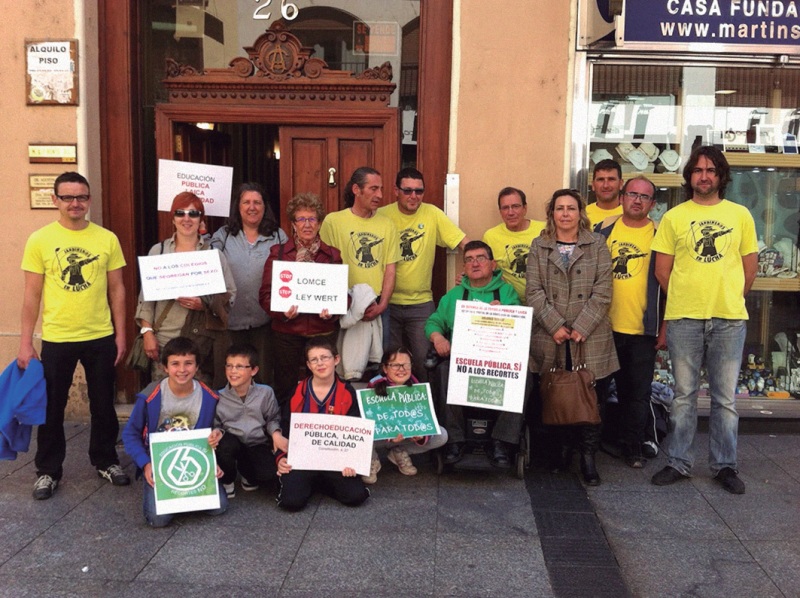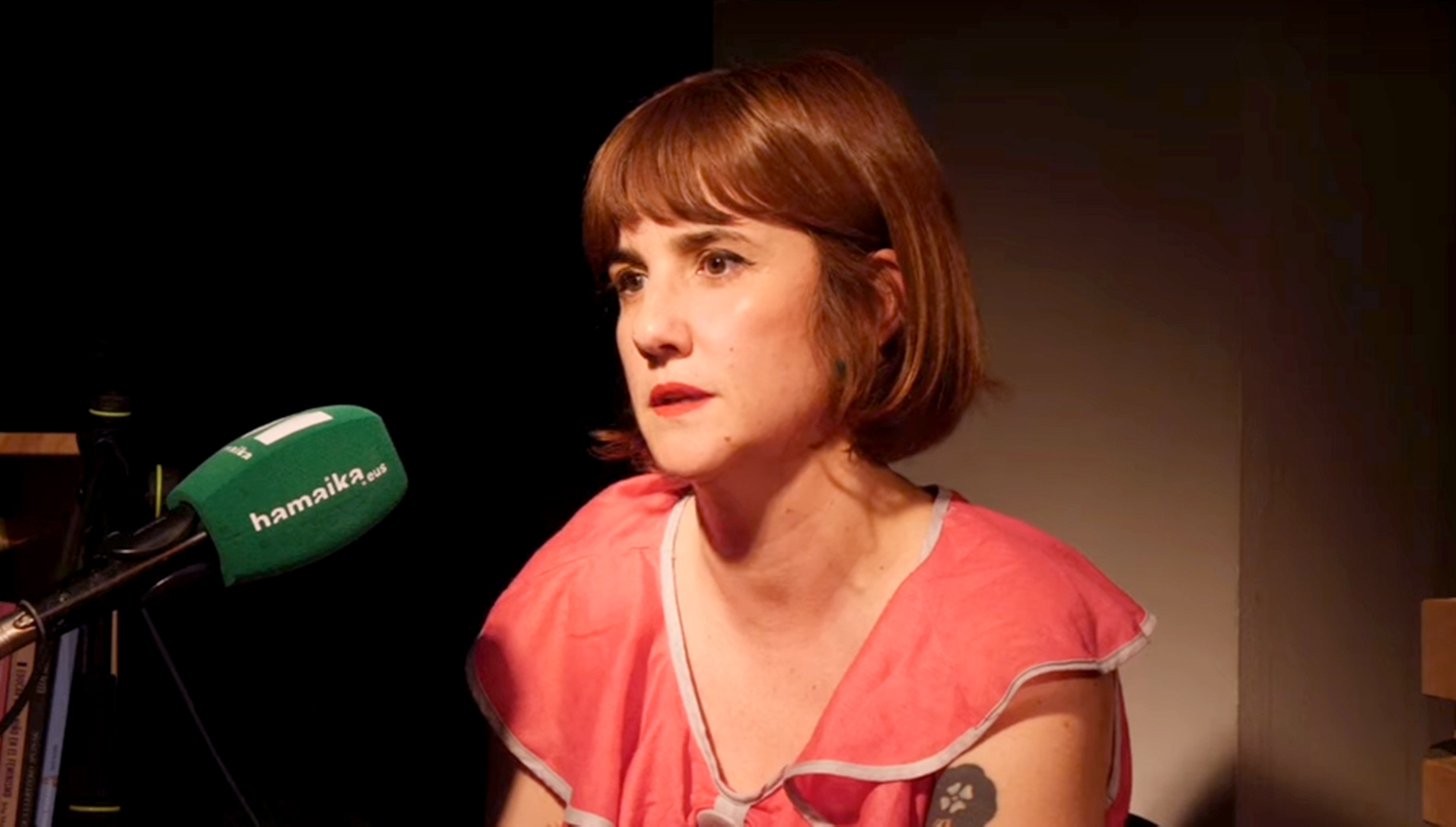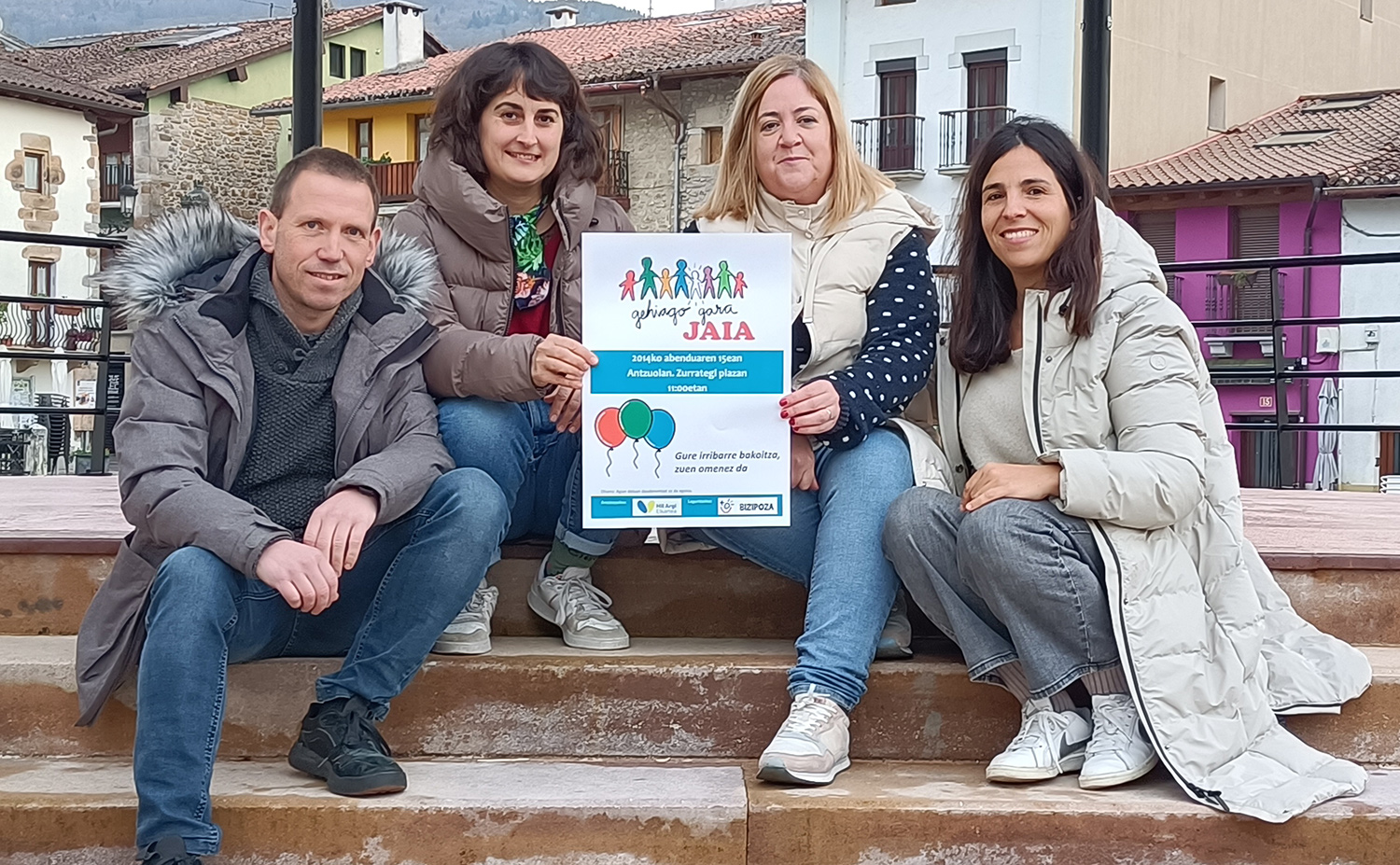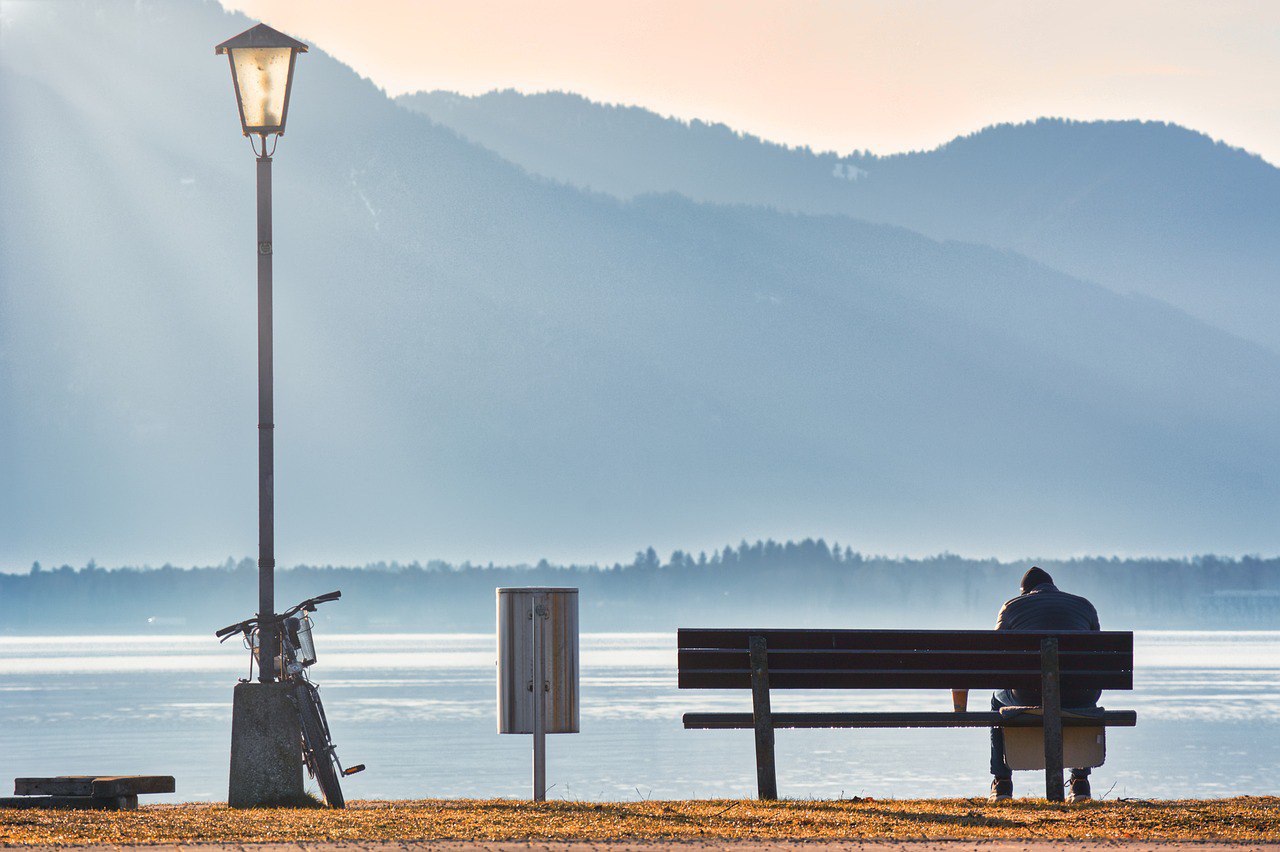A song for life?
- We tend to associate suicide with extreme suffering. With terminal phases of incurable physical diseases; with serious mental illnesses; with the tragic decision made at a critical moment when the person “is not a person”. However, putting an end to one's own life is a decision that has been reflected for a long time or with serenity. How do these kinds of suicides question death? How do you question life? Do you despise it or demand it? Does the presence of the possibility of putting an end to one's own life bring us closer to death, or to the construction of more pleasant and just lives?

We find it difficult to talk about death, even more difficult to commit suicide, and let us say nothing more than an extreme situation that is the result of a serene reflection.
In our culture and in our time – not in every corner of the world, not in our own – death and suicide are taboo. However, taboos are the people who have chosen the time and way to put an end to their lives. And not always as a result of intolerable depression or pain. Yes, they are a minority of suicides and yet we will talk about them from an ethical, philosophical and political point of view.
Living on your back to death
Death is part of life, not only of its end. But we deny it. Concha Castells Carrillo is President of the Basque Federation for the Right to Dignified Death and Doctor for Studies. “Death is there, it will reach everyone. But we don't talk about it. How is it possible?” he surprises. We have had a number of causes: “We have institutionalized death. We've taken him out of the house to take him to the hospital and to the residence. The first death occurred at home, surrounded by the family. Another factor is that mortality rates have dropped dramatically over the past 50 years. Living in the First World makes us believe a dream without death.” With invisible death comes the process of absolutization of life. Life without adjective: it doesn't matter what kind of life you live, just like the conditions in which you live.
In the taboo of suicide, Castells also sees other reasons, emphasizing the religious morality of centuries. “Your life is not yours. So, you don’t have a decision about it.” The State is the other great institution that denies the right to interrupt life. Beyond religious and political institutions, in the suicide issue, the legitimacy or lack of legitimacy of the decision is frequently discussed in another area: the suffering it causes in the family and in the friends.
Concha Castelles, Association of the Right to Die With Dignity:
“Hidden suicides cause more pain in family and friends. Guilt is higher. But if you talk, the pain is less.”
Castelles makes it clear: “Every person is sovereign to make decisions that affect their lives.” In his opinion, death causes pain, but not all pain is the same. “Suicides behind the back cause more pain in family and friends. Guilt is higher. But if you talk, discuss and try to understand, the pain is less.”
Cracks appear in a heavy taboo, albeit slow. Castells highlighted the concept used by the Exit association, a reference in Europe: Life Fulfilled. “Among the conditions of legal euthanasia are trying to include those of those who believe their lives are fulfilled. No illness or serious disability.” In the Netherlands this approach is being particularly discussed.
Group debate on suicide
Imanol Olabarria Bengoa is 81. About fifteen years ago, in the antimilitarist group Gasteiztarrak, they were opened a debate about the White Virgin's suicide. “We believed that in the age of our lives, at least, we saw no possibility of social transformation, and that we fed more than fighting the monster we hate with mere life.” They chatted for a couple of months.
“How long to live you have to decide yourself, that’s what we agreed on. It's decision and its own right, it's hard, yes. We didn't talk about dates or concrete ways, it was a philosophical-political debate. If we hadn't spoken then, today I would have found myself more betrayed before death. Today I am not afraid, but I do not foresee it either. I assume theoretically that my death may be by suicide: I do not consider it the main option, but I do not rule it out.”
He also sees it as a problem to live on his back to death. In the line of Castells, he says that we delegate death “as we delegate life in the hands of others”. It also relates non-life maintenance with the consumer society: “It would be a dream of this society to live always young and consuming”. Death has no place in this chimera.
In 2008, about a month and a half of the work, four people committed suicide in the Olabarria environment. One of them was a close friend, and his was the kind of suicide we're working on in this report. Olabarria felt pain and grief, “losing a friend without greeting.” But it didn't change her intimate thinking. "I have never thought that if someone decides to commit suicide, I will not be the person who opposes it publicly. Perhaps you ask what happens to him, we can do something… A friend recently told me: ‘If my partner’s disease tests are very bad, I’m thinking of going to Switzerland and dying with her – the option of suicide is legalized in Switzerland.’’ I don't know, I didn't tell her I shouldn't."
Olabarria believes that the decision is its own, but that it should be taken responsibly in relation to other people. “If I don’t have anyone in charge, I see it very simple. But if there are young children, I feel an obligation until I achieve autonomy.” Not only for respect for young children, but also for friends: “Friends, wife, it’s your circle. You can't cut and disappear the relationship abruptly. How do you do it? I don't know. When the subject is on the table, people are going to shake. But you have to think about it in some way, the opposite becomes ugly to me.”
.jpg)
Two famous suicides
On August 12, 2007, the suicide of Lluís Maria Xirinacsen shook the Catalan Countries. Senadora between 1977-1979, priest, defender of nonviolence and, above all, committed social activist, was the Catalan independentist who died at the age of 75. In 2000 he made the decision to stay every day and for an indefinite time from 9:00 to 21:00 in the Plaza de San Jaume to demand a National Assembly of the Catalan Countries. On the hundredth day, a necklace of kidneys took him to the hospital. Then he began to think of suicide, because the body did not allow him what his conscience demanded of him.
Text of the ‘sovereign act’ of Lluis María Xirinacs:
“Accept this end (...) as a counterpoint to the cowardice of our leaders. (...) They have lost a slave in me. My country is a little freer, because I am in you, friends”
Seven years later he interrupted his life in the Ogassa Mountains, in the Ripolles region, after entering into a coma without suffering through natural breathing and meditation techniques. The coroner who performed the autopsy acknowledged that this was the first time he had not found any violence or sign of suffering in the body of a suicide bomber and signed the natural death. She had a note in her pocket, where she was asked to leave her alone if someone found her. Before the office table of the Randa Foundation, he left the famous Sovereign Action paper: “I have lived 75 years in the Catalan countries occupied by Spain, France and Italy. I've spent every year of my life fighting this slavery. (...) accept this final (...) as a counterpoint to the cowardice of our bosses. (...) They have lost a slave in me. My people are a little freer, because I am in you, friends.”
Antonio Aramayona Alonso was a son of Zaragoza (Aragon, Spain). Professor of philosophy for several years, also a well-known activist. He was particularly involved in the struggle for public education and secular school. He suffered from various diseases and over time they would lead him to lose his physical autonomy and intellectual capacity. He committed suicide in 2016, at 68 years old. He had already drawn up his project for a long time. When journalist Jon Sistiaga learned that he was preparing a series of documentaries about death, he decided to use them to testify to his suicide process. A month and a half after the recording started, he died in his house bed with the poison, in the company of his friends. In the documentary we see Aramayona well with his physical and intellectual abilities. He mentions “tiredness” as a reason for suicide.

From the text written by Antonio Aramayona in his blog:
“I have tried to make my life dignified, free, valuable and beautiful. And so I have also wanted the last breath of life”
Aramayona hung his extensive public greeting on his blog: “When you read these lines, I will be dead. I have decided to put an end to my life, to exercise my inalienable right to decide freely and responsibly about my life. (...) I'm not a terminal patient, I haven't been found to have serious and incurable diseases. I'm not depressed. It's time to die, that's it. (...) In my life I have tried to ensure that what I think, what I want, what I do and what I have to do agree. That's why I've tried to make my life worthy, free, valuable and beautiful. And so I've also wanted the last sigh of life, dignified, free, beautiful and valuable. (...) there are people who want to prevent our life from being good (...) for centuries living well and not allowing us to die well (...) there is a free and responsible abandonment of life, without sadness, without fear, only with tranquility, and for love of life. Thank you. A strong hug.”
.jpg)
Commuter in the suicide process
Joan Parés, friend of Xirinacs suicidal:
“I thought: ‘well, if he wants to...’ From then on, I felt I was doing a lot for a friend.”
Joan Parés Grahit is a 71-year-old retired doctor who joined the clinic to donate. It is four years since it was incorporated into the Right to Die with Dignity Association of Catalonia. It helps people who want to end their lives, sick or dying, and “are tired of living. Little, but there is.” Xirinacsen was the family doctor and, above all, a great friend we have already talked about. The suicide process began and was shared once again.
He had known Xirinacs' intentions for years. However, when he left with the exact date he was “crazy”. “Then I thought: ‘well, if he wants to...’ From then on, I felt like I was doing a lot for a friend. Being a friend is sometimes not easy. I didn’t have any pain, a great pity for a friend who goes and won’t come back.”
The site had been chosen by Xirinacs. Parés explained that he did so between 2000 and 2002, and that he did so in 2007. “Only he and his two friends knew it. It had to be quiet, to accompany. I found out about the date a month earlier, before a week. I accompanied her to the forest in the car and she cheerfully rolled down the road. We talked about friends, about projects, about everything, and there he stayed.”
Mari Sol Ibáñez Garmendia is 76 years old; Ana Cuevas Pascual, 54. Both were intimate friends of Aramayona and stood by her on the road of suicide. “A long and short process at once,” says Ibáñez. “Five years earlier he informed family and friends that he wanted to end his life. For a while he postponed the idea, for the pain it would cause the family and for the desire to meet a nephew. Years later, their decadence increased and an irrevocable decision was taken. This last phase was a month and a half.” The last moments remind them excited. “We were in his house; at one point he said ‘it’s time’, he went to his room, put us on the t-shirt of public education and called us. We were a few friends. We hugged and we kissed, we cried, we said we loved each other a lot. He took the drink and went to sleep. They were moments of great intensity and affection. Exciting, painful but at the same time joyful, I don’t know, it was a very sweet death.”
Political suicides
Just as every act is political, every suicide is political. They ask us about life, about the model of society, about our convictions and values, each in its own way. But Aramayona and Xirinacs sought concrete political objectives in order to put an end to their lives, as many do throughout history and today in very different ways.
Aramayona, moving his suicidal process to the documentary, tried to make an apology for the right to good death, trying to be pedagogical. In his farewell letter, apart from individual freedoms, he speaks of collective freedoms, of society, of justice, of ethics. “He had a full life, was very much loved and enjoyed the pleasures of life. But he saw injustice and misery everywhere and rebelled against them,” Cuevas highlighted the colleague who had left.
Xirinacs, for his part, wanted to awaken awareness and attitudes with his suicide and his farewell letter. For Parés, “it is a suicide to shake the Catalan people, to take things seriously. I used to say: ‘The hunger strike is not done to soften the enemy, but to mobilize friends’. We think it had some influence on the change that has taken place recently.”
A song for life
To reflect personally and collectively on suicide is not a cult to Tanatos, but a cult to Eros. The possibility of ending one's own life involves filling life with content, because not every life is worth it. What is the meaning of life? What is its value? What is a habitable life? What about a habitable society? How will we build them?
“Thinking that I have the door to leave if life makes me unbearable strengthens my love of life. It makes me feel a little more daring,” says Cuevas, “it’s a way to remove fears, to build desirable lives”, Olabarria; “life at any price not; it’s an apology of good life”, Castelles.
The socialist couple formed by Paul Lafargue and Laura Marx committed suicide together in 1911. “Healthy in body and in spirit, I will end my life before the relentless aging robs one after the other the pleasures and joys of life,” Lafargue wrote. Violeta Parra committed suicide in 1967. Three months earlier he published one of his most well-known songs, which some have performed as a greeting: Eskerrik asko to life (eskerrik asko bizi). Aramayona wanted to say goodbye to life by listening to the song of freedom to Txoria Txori, from the bed of his house and among his friends.
Soco Lizarraga mediku eta Nafarroako Duintasunez Hiltzeko Eskubidea elkarteko kidearen ustez bizi testamentuak heriotza duin bat eskaini eta familiari gauzak errazten dizkio.
Gertakariak igande egunsentian suertatu dira 5:00ak aldera Gasteizeko Mitika diskotekan. Hildako pertsona 31 urteko gizon bat da, eta lurraren kontra buruarekin hartutako kolpe baten ondorioz hil da, antza atezainak kolpe bat eman ostean.
These were my last words when we left, held hand in your deep breathing sleep. Your heart stayed forever without a special, simple, dignified pain. As you want and demand. How we want and respect.
Already a month before the arrival of winter, the last days of the longest night,... [+]
First of all, we wish to extend our condolences to the family and friends of the woman killed in early August.
The people of Gaintxurizketa are fed up with the disillusionment of the administration and those responsible.
Those of us who live in the neighborhood are forced to... [+]
Paris 1845. The Labortan economist and politician Frédéric Bastiat (1801-1850) wrote the satire Pétition des fabricants de chandelles (The Request of the Sailing). Fiercely opposed to protectionism, he ironistically stated that the sailing boats asked for protection against... [+]











.jpg)








